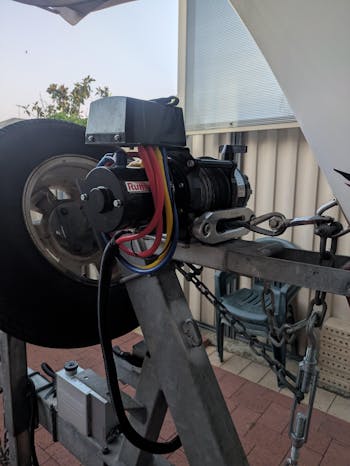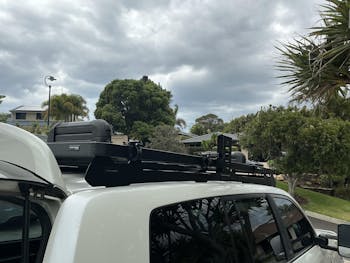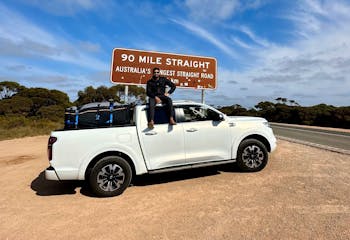The Difference Between 4WD Winch Rope vs Steel Cable
Deciding whether to go with synthetic winch rope or steel cable?
We break down the differences.

While many offroad enthusiasts have a personal preference over steel cable or synthetic winch rope, over the last few years synthetic rope has been adopted as the preferred choice, and is often mandatory in most major sanctioned off-road events.
The decision often comes down to what you’ll be using the particular 4WD winch and rope or cable for. Your circumstances will very much determine your final decision.
Most winches today come pre-packaged with either synthetic rope or steel cable. Depending on which will often determine the price difference as synthetic is usually more expensive than steel.
Below is a general list of synthetic vs steel pros and cons. It’s important to note that not all synthetic and steel cables are the same, and some will have different features and capabilities.
Synthetic Winch Rope Pros
- Strength: Dyneema rope is up to 15 times stronger than steel.
- Weight: Synthetic rope is much lighter than steel, and easier to carry and handle.
- Handling: Synthetic rope doesn’t develop sharp burrs over time, which can be dangerous.
- No rust: Steel cable can rust and in turn weaken if not kept dry and maintained.
- Safety: Synthetic rope doesn’t store up as much energy as a steel cable does, which means if it breaks it won’t become a lethal projectile and cause injury to you or damage your vehicle.
- It’s flexible: Steel winch cable is prone to kinks which in turn makes it harder to spool up on the drum, further decreasing strength. It is to be noted that synthetic rope, if not handled carefully can knot.
- It floats: If you get stuck in a mud-hole or body of water having this advantage can be a great help.
- Repair: if it snaps it can usually be repaired in the field with proper braiding techniques.
Synthetic Winch Rope CONS
- Can be susceptible to UV exposure, heat, chemicals and abrasion. If the rope’s going to be dragged over jagged rocks and other harsh terrain it can get damaged.
- Can hold water: this can add weight, and if you’re in a cold environment, can even freeze.
- Needs to be properly maintained. Grains of sand and dirt can bury themselves in the rope’s core and weaken it’s integrity. If you’re out in the mud and dirt it’s important that you take time to spool it out and wash it occasionally.
- Expense: Synthetic cable is often the more expensive option.
Depending on the customers circumstances, 9 out of 10 times we will recommend a synthetic winch rope over steel cable. Today synthetic winch ropes are far more flexible than steel cable. They're easier to handle, safer, lighter and usually stronger than their steel counterpart.
The weight difference between rope and steel cable shouldn't be underestimated either. Your vehicle winch already weighs a substantial amount and is likely putting strain on your front shocks and bar as it is. Adding additional weight with a 25 - 30m steel winch cable is only going to push their limits further.
A quick comparison. The Runva 9.5mm x 26.5m Steel Winch Cable weighs 12.5kg, while the near equivalent Runva 10mm x 30m Synthetic Rope weighs 3kg. That's a massive 9.5kg difference! And you're getting an additional 5 meters of rope.
Steel cable still has its place in various scenarios. It's still the perfect type of line to use in highly abrasive terrains, where the cable might be coming in contact with the likes of mud, rocks, and sand. Agricultural applications often require a steel cable; moving tree trunks over rocky terrain as a small example. However if you're looking for a recovery rope for your 4WD winch, that you're going to use on weekend trips away, then a good quality synthetic rope would be the way to go.
Regardless of which option you choose, always make sure you use a winch cable dampener when winching. If a winch cable snaps (synthetic or steel) it can become a dangerous projectile and cause significant harm to those nearby and other vehicles.
If you're still unsure which way to go feel free to reach out to us via phone or via our contact form. We'd be happy to discuss your situation and provide any guidance we can.



















